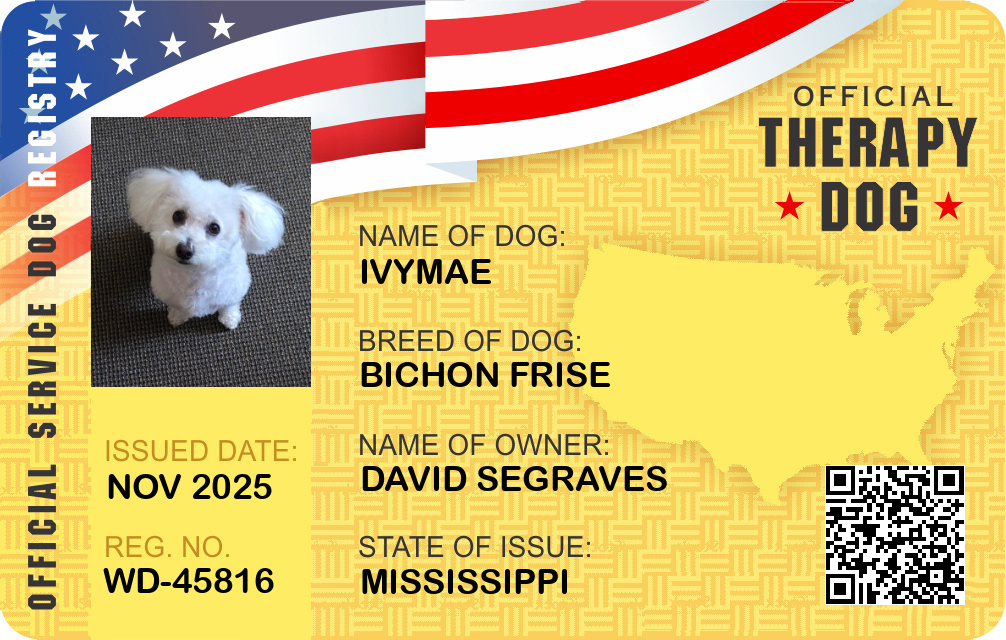Missouri Emotional Support Animal Laws

Overview of ESAs and Legal Definitions in Missouri
What is an Emotional Support Animal?
An Emotional Support Animal (ESA) serves as a companion animal that provides therapeutic benefits to an individual with a diagnosed psychiatric or mental health condition. Unlike service animals, ESAs do not require specific training to perform tasks related to a disability; their primary role is to provide comfort and emotional stability to their owner through their presence. In Missouri, as in the rest of the United States, ESAs are recognized under federal laws but are distinct from service animals.
How ESAs Differ from Service Animals
Although they both assist individuals with disabilities, ESAs and service animals are distinctly different under the law. Service animals are specially trained to perform tasks for individuals with physical disabilities, such as guiding a blind person or alerting a hearing-impaired person. The Americans with Disabilities Act (ADA) only recognizes dogs (and in some cases, miniature horses) as service animals. ESAs, on the other hand, can be any species of animal and do not require specialized training. The primary purpose of an ESA is to provide emotional support and comfort. Consequently, ESAs do not have the same public access rights as service animals under the ADA.
Key Federal Laws Affecting ESAs (e.g., FHA, ACAA)
Certain federal laws offer protections for ESA owners. The Fair Housing Act (FHA) mandates that individuals with ESAs are entitled to reasonable accommodations in housing situations, meaning landlords must allow ESAs even in properties with no-pet policies. Additionally, the Air Carrier Access Act (ACAA) previously provided some rights for individuals flying with ESAs, but changes in guidelines have limited these primarily to service animals, with airlines now having discretion over ESA policies. Federal laws affect how Missouri recognizes and enforces ESA-related rights, especially concerning housing.
State-Specific ESA Laws in Missouri
Housing Rights and Responsibilities
Missouri follows federal guidelines under the FHA to ensure that individuals with ESAs have housing rights. Landlords are required to provide reasonable accommodation for ESAs, even if the building has a "no pets" policy. This means that ESA owners are exempt from pet fees and deposits; however, the owner is responsible for any damage caused by the animal. A legitimate ESA letter from a licensed mental health professional is typically required to secure these rights.
Public Access and Accommodation
Unlike service animals, ESAs do not have the right to unrestricted access to public places in Missouri. Businesses, public transportation, hotels, and other public accommodations are not legally obligated to allow ESAs unless they choose to do so. While an ESA provides significant emotional support, it's crucial to understand that ESA status does not override public health rules and business policies.
Transportation and Travel Rules
Recent changes under the ACAA now allow airlines to have stricter policies regarding ESAs. Missouri residents traveling with ESAs will find that airlines might treat ESAs as regular pets, meaning they could incur additional fees and be required to travel in the cargo hold or an under-seat carrier. It is essential for owners to check the specific airline's policy on ESAs well in advance of travel.
Employment and Workplace Considerations
While Missouri does not have explicit ESA workplace accommodations enshrined in law, employers are encouraged to consider allowing ESAs under certain conditions as part of an inclusive and supportive workplace environment. The ADA does not require ESAs to be permitted in the workplace, so accommodations are negotiated on a case-by-case basis. Employers may request documentation, such as an ESA letter, to substantiate an accommodation request.
Documentation, Requirements, and Processes in Missouri
ESA Letters and Who Can Issue Them
To authenticate an ESA, a letter from a licensed mental health professional is necessary. This letter should specify a diagnosed menta
Register Your Dog Instantly
l health condition recognized by the Diagnostic and Statistical Manual of Mental Disorders (DSM) and confirm that an ESA is an important part of the treatment plan. Qualified professionals include psychologists, psychiatrists, clinical social workers, and licensed counselors.Registration, Certifications, and Common Misconceptions
There is no official registry or certification process for ESAs at the state or federal level. Websites offering to "register" an ESA or provide certificates and ID tags often contribute to misconceptions and are not legally recognized. The only legitimate documentation required is the ESA letter from a licensed professional.
Landlord, Business, and Provider Verification Rules
Landlords in Missouri are permitted to verify ESA letters by contacting the issuing professional for confirmation. They cannot, however, ask for specific details about the tenant’s condition. Businesses are not entitled to require ESA documentation, as they are not required to accommodate ESAs beyond typical pet policies.
Rights, Limitations, and Legal Risks
Rights ESA Owners Have in Missouri
- Housing: ESA owners are entitled to reasonable accommodation in housing under the FHA, exempt from pet-related restrictions and fees.
- Privacy: Owners have a right to privacy concerning their disability status and related medical details.
Limits on ESA Protections and Common Restrictions
- Public Access: ESAs do not have the same public access rights as service animals; entry to public areas is at the discretion of the business.
- Transportation: ESAs are not entitled to free airline travel like service dogs, and owners should prepare for airline-specific policies.
Penalties for Fraud or Misrepresentation
Misrepresenting a pet as an ESA or a service animal is a growing concern and can lead to penalties. While specific fines vary, individuals found fraudulently claiming an ESA can face evictions, fines, and legal repercussions.
Practical Guidance for ESA Owners in Missouri
How to Qualify for an ESA Legitimately
To qualify for an ESA, a person must have a verified mental health condition, and the ESA should be recommended as part of a treatment plan. This requires obtaining a legitimate ESA letter from a qualified professional.
How to Talk to Landlords, Airlines, and Employers
- Landlords: Present the ESA letter and explain the need for accommodation. Prepare to discuss any concerns about animal behavior and responsibilities.
- Airlines: Confirm ESA policies well before your travel date. Be equipped to present necessary documentation and comply with specific transport requirements.
- Employers: Collaborate with human resources to discuss any reasonable accommodation and be open to alternative solutions that maintain workplace harmony.
Tips for Avoiding Scams and Legal Problems
- Use only licensed professionals for ESA letters.
- Avoid online registries that offer to “certify” ESAs or provide identification tags.
- Stay informed about relevant law changes and guidance from housing providers and airlines.
Summary of ESA Laws in Missouri
- Rights: ESA owners have housing rights under the FHA, requiring landlords to permit ESAs without pet fees.
- Limitations: ESAs lack public and workplace access rights, differing from service animals.
- Documentation: A licensed mental health professional must issue the ESA letter.
- Risks: Misrepresenting an animal as an ESA or service animal can result in legal penalties.
- Guidance: Verify ESA legitimacy, comply with housing policies, and engage landlords/employers with proper documentation.
By understanding these laws and guidelines, ESA owners in Missouri can effectively advocate for their needs while respecting the rights and limitations imposed by law.











